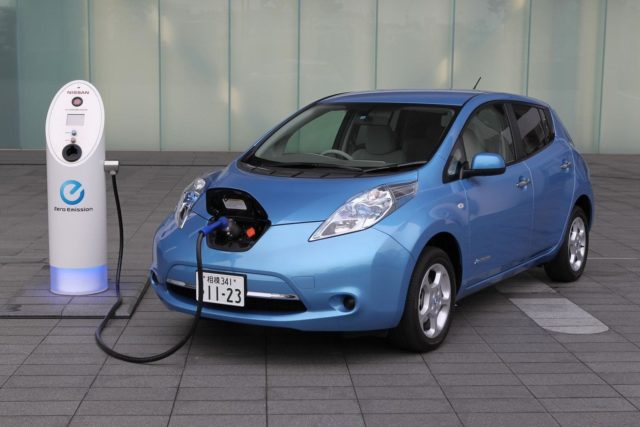
The transition to a zero net carbon emissions economy by 2030 may allow the creation of millions of jobs in Latin America and the Caribbean, according to a new report by the Inter-American Development Bank (IDB) and the International Labor Organization (ILO).
The document noted that although the COVID-19 Pandemic has exposed vulnerability and inequalities in the region, the transition to a green economy “offers the promise of creating 15 million new net jobs.”
“This is basically the key finding,” interim head of the IDB’s Climate Change Division, Graham Watkins, said in a virtual meeting with journalists, while the ILO regional director for Latin America and the Caribbean Vinícius Pinheiro added that yes, “it is possible to create jobs and combat climate change at the same time.”
In the report “Creating Jobs for a Sustainable Recovery and a Zero Net Emission Future”, it was noted that transformations in sectors such as agriculture, forestry, renewable energy, construction and manufacturing can create jobs, tackle climate change and support in the recovery after the COVID-19 Pandemic.
Specifically, agriculture and forestry show great job potential in a region that is home to 40% of the world’s biodiversity and close to 50% of tropical forests, in addition to being the world’s leading food exporter. This can complement the positions that are already being created in sectors such as renewable energy, electric mobility, public transport, manufacturing, waste management and high energy efficiency construction.
The goal of reaching zero net carbon emissions is “necessary and will bring many benefits” in the region, “although we must admit it is not easy under the current circumstances, but many countries already they are working on plans to achieve this goal.” In this sense, countries like Mexico and Chile “have wind energy, which is the cheapest in the world,” and decarbonization should be seen “as an opportunity to create employment for all countries.”
In turn, the goals of creating jobs and fighting climate change at the same time can be mutually reinforcing, it is not one or the other. That is very positive news, very important, especially in this context of the economic impacts of the COVID-19 epidemic.
The current health situation has generated “the worst recession” in the history of Latin America, with a number of unemployed that can reach 40 million people. The ILO regional representative added that “the key to this compatibility” is “a just transition, which guarantees a passage to a more sustainable economy”, since “it is essential” that policies be applied that act “towards equality”.
Support should also be given to workers, companies and communities that will be directly affected by the reduction in size of the industries that are currently the most polluting, with those linked to livestock and fossil fuels.
“It is true that some are going to lose their jobs,” he acknowledged before commenting that tourism is another sector that is “re-founding” after the impact of the Pandemic, so “it is essential and a great investment opportunity to work with local communities for making a more sustainable way of tourism.” Pinheiro added that the expansion of teleworking has shown that it is possible to reduce commuting for work reasons, something that also “has an impact on carbon emissions.”
Green and Inclusive Recovery
The IDB and ILO report stressed that “a green and inclusive recovery is essential” to face the climate crisis and that if the region does not act from now on, the vulnerabilities exposed by the epidemic will also appear during climate crises.
In this scenario, the ILO estimated that by 2030 the region could lose 2.5 million jobs “only due to global warming” and the IDB projected that the damages caused by climate change could cost 100,000 million dollars. annually by 2050.
The agencies stressed that “the time has come to create a more inclusive, resilient and sustainable future”, with regards to the current work deficit, inequalities and dependence on fossil fuel exports, that make Latin America and the Caribbean be “particularly susceptible” to the social and economic effects of the current Pandemic.
Carbon Free Prosperity
Despite this, the report reiterated that the region “can achieve carbon-free prosperity through immediate and parallel actions around five pillars”, including the gradual elimination of the generation of electricity from fossil fuels and its substitution by carbon-free sources, such as wind and solar energy.
Also the use of electricity instead of fossil fuels for transportation, food preparation and heating; the increase in public and non-motorized transport, and the stop of deforestation and tree planting. The latter, will require a change in diets to replace foods of animal origin with others of plant origin; to which must be added the reduction of waste, the recycling of materials and the use of sustainable construction materials, such as wood or bamboo.
The document highlighted that the “rich resources” and the “relatively low” level of demographic pressure make the region “well equipped to make a transition to zero emissions.”
However, it is admitted that the path forward “is full of obstacles” and has among its challenges to ensure “a just transition” to achieve change “as equitable as possible and (based on) a participatory approach.”
Although many of the new jobs will target low and medium-skilled employees, the report warned that 80% will be in sectors that are dominated by men, so “the current gender segregation by occupation must be addressed” .
Finally, the report emphasized the need to encourage “social dialogue and joint construction” so that governments can coordinate their social, environmental and sectoral development objectives, as well as “guarantee that workers, companies and communities are prepared to prosper in a zero net emissions economy.”

